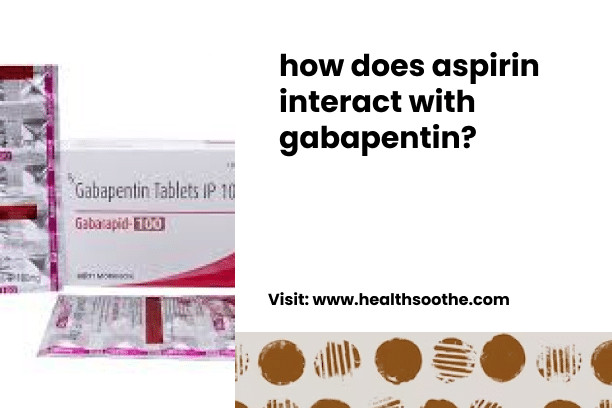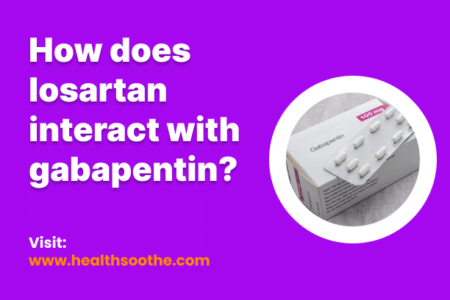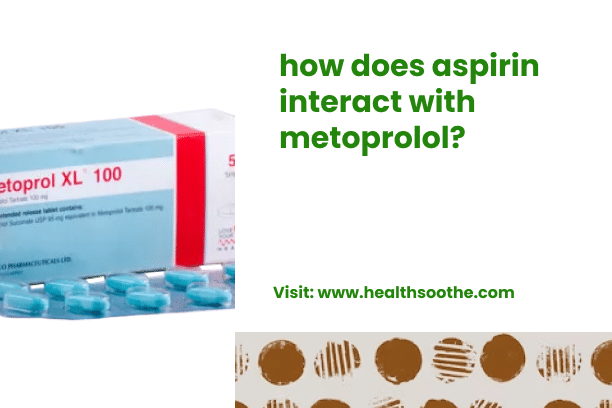Aspirin is a medication commonly used to relieve pain, reduce inflammation, and lower fever. It belongs to a class of drugs known as nonsteroidal anti-inflammatory drugs (NSAIDs). Aspirin works by inhibiting the production of certain chemicals in the body that are involved in inflammation, pain, and fever. It is often used to treat conditions such as headaches, muscle aches, arthritis, and fever. Additionally, aspirin is sometimes used in low doses to reduce the risk of heart attacks and strokes in certain individuals.
Gabapentin is a medication primarily used to treat seizures and nerve pain. It works by affecting the way certain nerves in the brain send messages to each other. Gabapentin is commonly prescribed to treat conditions such as epilepsy (seizures), neuropathic pain (nerve pain caused by conditions such as diabetes or shingles), and restless legs syndrome. It is believed to reduce the abnormal electrical activity in the brain that leads to seizures and to alter the transmission of pain signals in the nerves, thereby reducing pain sensations. Gabapentin is sometimes also used off-label to treat conditions such as anxiety, insomnia, and hot flashes.
Interactions between your drugs
Aspirin Low Strength
A total of 343 medications have been identified to interact with Aspirin Low Strength.
Aspirin low strength belongs to the drug classes of platelet aggregation inhibitors and salicylates. It is utilized to manage various conditions including:
- Angina
- Angina Pectoris Prophylaxis
- Heart Attack
- Ischemic Stroke
- Ischemic Stroke, Prophylaxis
- Myocardial Infarction, Prophylaxis
- Niacin Flush
- Prevention of Thromboembolism in Atrial Fibrillation
- Prosthetic Heart Valves - Thrombosis Prophylaxis
- Prosthetic Heart Valves, Mechanical Valves - Thrombosis Prophylaxis
- Revascularization Procedures, Prophylaxis
- Spondyloarthritis
- Thromboembolic Stroke Prophylaxis
- Transient Ischemic Attack
gabapentin
A total of 268 medications have been identified to interact with gabapentin.
Gabapentin belongs to the drug class of gamma-aminobutyric acid analogs. It is utilized to treat a variety of conditions, including:
- Alcohol Use Disorder (off-label)
- Alcohol Withdrawal (off-label)
- Anxiety (off-label)
- Back Pain
- Benign Essential Tremor (off-label)
- Bipolar Disorder (off-label)
- Burning Mouth Syndrome (off-label)
- Carpal Tunnel Syndrome (off-label)
- Chronic Kidney Disease-Associated Pruritus (off-label)
- Chronic Pain
- Cluster-Tic Syndrome (off-label)
- Cough (off-label)
- Diabetic Peripheral Neuropathy (off-label)
- Epilepsy
- Erythromelalgia (off-label)
- Fibromyalgia (off-label)
- Hiccups (off-label)
- Hot Flashes (off-label)
- Hyperhidrosis (off-label)
- Insomnia (off-label)
- Lhermitte's Sign (off-label)
- Migraine (off-label)
- Nausea/Vomiting, Chemotherapy Induced (off-label)
- Neuropathic Pain (off-label)
- Occipital Neuralgia (off-label)
- Pain (off-label)
- Periodic Limb Movement Disorder (off-label)
- Peripheral Neuropathy (off-label)
- Postherpetic Neuralgia
- Postmenopausal Symptoms (off-label)
- Primary Orthostatic Tremor (off-label)
- Pruritus (off-label)
- Pudendal Neuralgia (off-label)
- Reflex Sympathetic Dystrophy Syndrome (off-label)
- Restless Legs Syndrome (off-label)
- Seizures
- Small Fiber Neuropathy (off-label)
- Spondylolisthesis (off-label)
- Syringomyelia (off-label)
- Transverse Myelitis (off-label)
- Trigeminal Neuralgia (off-label)
- Vulvodynia (off-label)
Read also: Strategies for Preventing Prescription Drug Abuse
Pros and Cons of aspirin and gabapentin
Aspirin:
Pros:
- Pain Relief
- Anti-inflammatory
- Fever Reduction
- Cardiovascular Benefits
- Blood Thinning
Cons:
- Gastrointestinal Side Effects
- Allergic Reactions
- Bleeding Risk
- Reye's Syndrome
Gabapentin:
Pros:
- Seizure Control
- Nerve Pain Relief
- Few Drug Interactions
- Off-label Uses
- Low Abuse Potential
Cons:
- Side Effects
- Withdrawal Symptoms
- Cognitive Effects
- Potential for Misuse
- Renal Impairment
Differences Between aspirin and gabapentin
Aspirin:
Primarily used as an analgesic (pain reliever), anti-inflammatory agent, and antipyretic (fever reducer). It is also used for long-term prevention of cardiovascular events such as heart attacks and strokes.
Gabapentin:
Primarily used as an antiepileptic medication to control seizures and as a treatment for neuropathic pain conditions like diabetic neuropathy and postherpetic neuralgia.
Alternative to aspirin and gabapentin
Alternatives to Aspirin:
COX-2 Inhibitors:
These are a subclass of NSAIDs that selectively block the COX-2 enzyme, which is responsible for inflammation and pain. Examples include celecoxib (Celebrex). They may be used as an alternative for individuals who are at higher risk of gastrointestinal side effects with traditional NSAIDs.
Alternatives to Gabapentin:
Pregabalin (Lyrica):
This medication works similarly to gabapentin and is also used to treat neuropathic pain and seizures. Some individuals may respond better to pregabalin or experience fewer side effects.
Drug and food interactions
gabapentin food
AVOID GENERALLY: Alcohol has the potential to enhance certain pharmacological effects of CNS-active agents. Combining them may lead to increased central nervous system depression and/or impairment of judgment, cognitive function, and motor skills.
MANAGEMENT: Patients taking CNS-active agents should be informed about this interaction and instructed to abstain from or reduce alcohol consumption. Ambulatory patients should be advised to avoid engaging in hazardous activities that demand full mental alertness and motor coordination until they understand the effects of these agents on them. They should also inform their physician if they experience excessive or prolonged CNS effects that interfere with their daily activities.
aspirin food
AVOID GENERALLY: Concurrent use of aspirin or nonsteroidal anti-inflammatory drugs (NSAIDs) with ethanol may increase the risk of gastrointestinal (GI) bleeding. This could be attributed to a combined local effect and inhibition of prostaglandins, resulting in reduced integrity of the GI lining.
MANAGEMENT: Patients should be informed about this potential interaction and cautioned against consuming alcohol while using aspirin or NSAIDs.
aspirin food
A study has found that combining caffeine and aspirin can result in a 25% rise in the rate of appearance and a 17% increase in the maximum concentration of salicylate in the bloodstream. Moreover, a notably higher area under the plasma concentration time curve of salicylate was observed when both medications were taken simultaneously. However, the precise mechanism behind this interaction has not been elucidated. It's important for physicians and patients to recognize that the concurrent use of aspirin and caffeine may lead to quicker elevation of salicylate levels.



